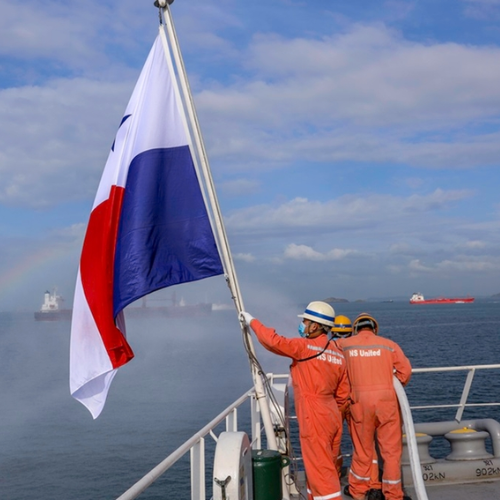Panama, home to one of the biggest ship registries in the world, has taken bold action by removing more than 650 ships from its list since 2019. This move is part of a major cleanup effort to make sure that ships flying Panama’s flag are following global rules, especially when it comes to sanctions.
The country’s Maritime Authority shared this information on Monday. Out of the total ships removed, 214 were taken off the list just in the last year alone. That’s when Panama started using new rules that allow it to act more quickly against ships that may be breaking international laws.
When a ship is removed from Panama’s registry, it loses the right to use its flag. This is a big deal in the shipping world. A ship’s flag tells people which country it belongs to and what rules it must follow. Once the flag is taken away, the ship can’t legally sail under that country’s name anymore.
Baltic Sea on High Alert: Sweden Orders Ship Crackdown to Crush Kremlin’s Sanctions Evasion
Pressure Mounts Over Sanctions and Safety
Panama’s recent actions follow criticism from groups worried about ships helping countries like Iran avoid international sanctions. One group said Panama wasn’t doing enough to stop oil tankers from illegally moving Iranian oil. According to this group, about one out of every five ships believed to be moving Iranian oil carries the Panama flag.
This has raised alarms, especially in the United States. Some people believe that if ships continue to ignore sanctions, it could hurt international safety and weaken the power of global rules. The U.S. government has even warned Panama about the risk of having too many ships in what is called the “dark fleet.”
The “dark fleet” is a group of ships that try to hide their activities. Some of these ships turn off their tracking devices, making it hard to see where they are or what they’re doing. This is often done on purpose to dodge rules or avoid punishment.
In response, Panama has started cracking down on ships that switch off their trackers. It has also introduced stricter rules for ship-to-ship transfers—when oil or other goods are moved from one ship to another at sea. These types of operations are sometimes used to avoid detection.
Russia Delivers Pantsir-S1 to North Korea Evading Sanctions—UN Rules Shattered as New Axis Emerges
Global Cooperation and a Tougher Registry
Panama isn’t doing this alone. In 2019, it signed a deal with other major ship registries like those in Liberia and the Marshall Islands. This agreement allows countries to share information about ships that have had their registrations removed or blocked because of possible rule-breaking. This helps prevent the same ships from simply moving to a different registry to avoid sanctions.
Panama’s Maritime Authority has made it clear that it is working closely with the United States to clean up its ship list. This includes checking whether ships are involved in shady activities and taking action faster when there is evidence of wrongdoing.
The U.S. has been pushing countries like Panama to take more responsibility for the ships they allow to fly their flags. Panama’s cooperation is important because the country manages a huge number of ships—more than 8,500—making it one of the world’s top choices for ship registration.
Now, with more than 650 ships removed in the past few years, Panama is showing that it is serious about keeping its registry clean. The aim is to stop ships from using its flag to break rules, hide illegal trade, or cause environmental harm.


